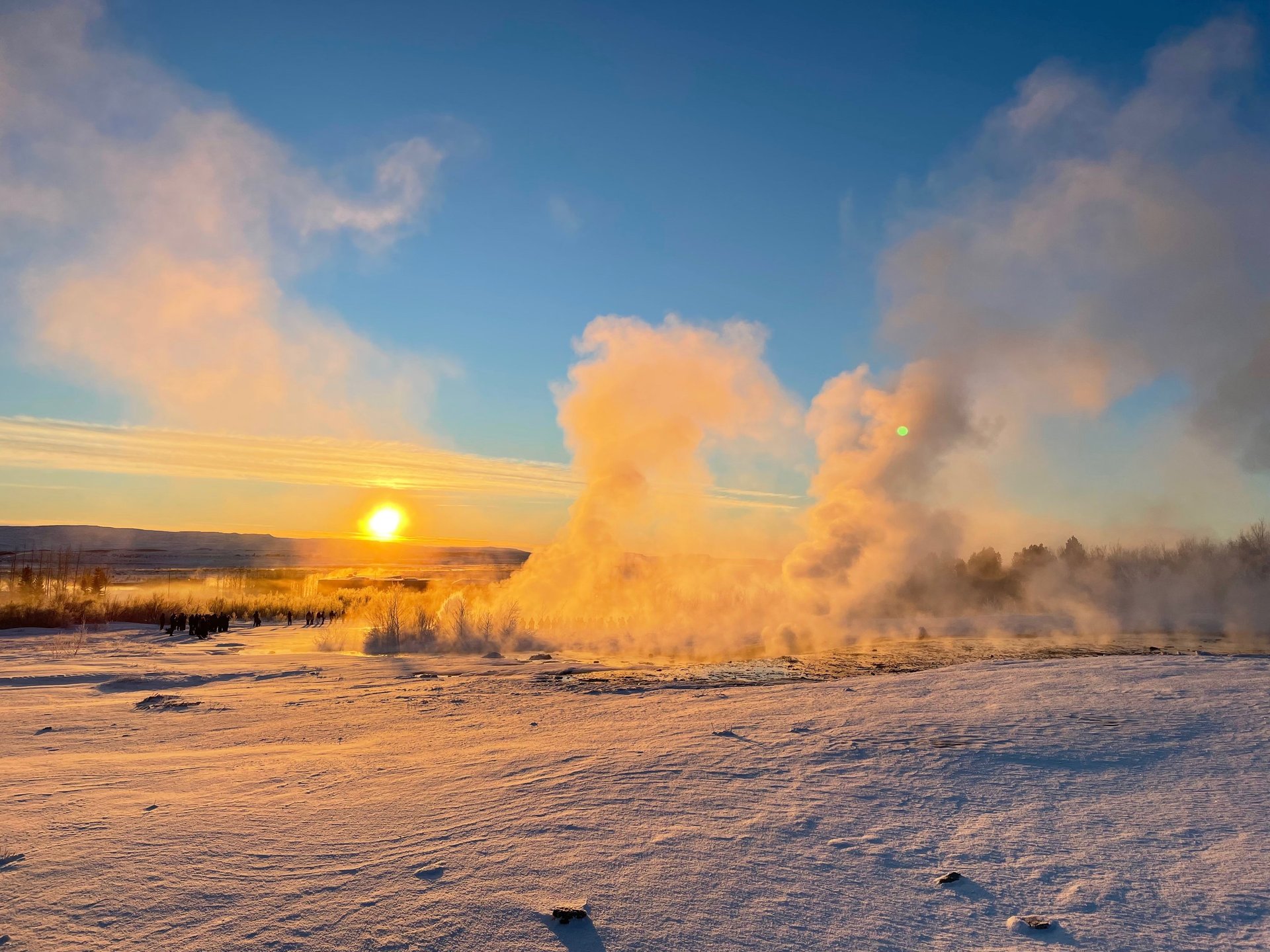
Iceland
The land of Ice and Fire
Our four night trip to Iceland started with an evening flight from Manchester arriving at Keflavik international airport which is around 30 minutes drive from Reykjavik at around 8:30pm and we were transferred to the car hire depot by their courtesy van. We had pre booked a medium sized car without realising how bad the weather conditions would be. As it was the last week of December it was very cold and thick in snow. We asked if we could change the vehicle for a four wheel drive but there were non available so off we drove in our Skoda Superb.
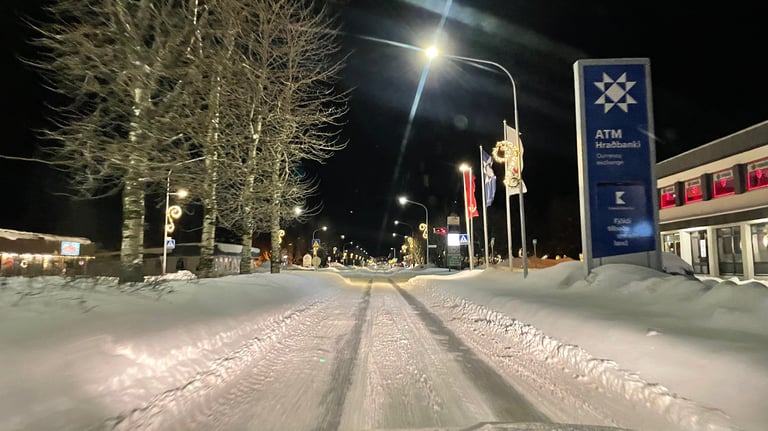

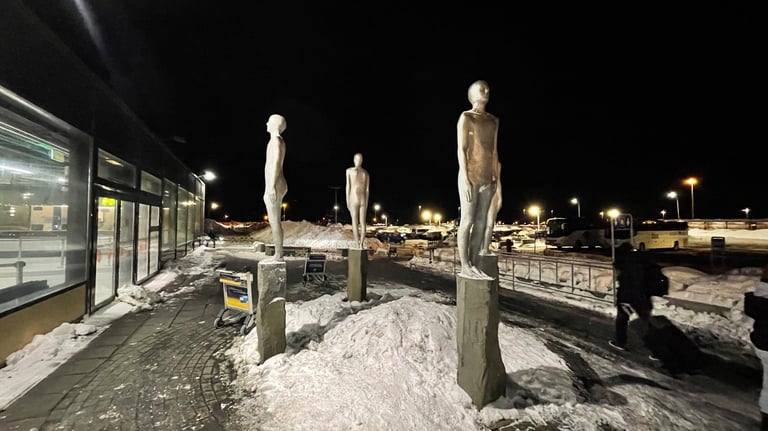

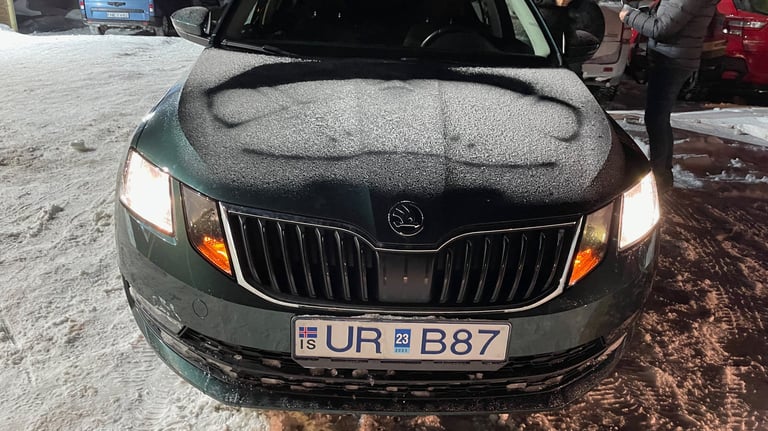

We had pre booked accommodation near Selfoss which is around an hour and thirty minutes drive from the airport under normal conditions, but the roads were thick in snow. On our way to our accommodation we turned off the main road onto the minor road that leads up to the place that we were staying and immediately got stuck in the snow as the minor roads had deep snow building up in places. Another car passed and attempted to help us without any luck, but they were also going to the same accommodation so Tracey decided to go with them to see if they could help. Whilst I waited for Tracey another pickup pulled over to try to help, but this driver was well equipped with a couple shovels that we used to dig the snow out from around the wheels and managed to free the car. So I continued carefully up to the accommodation to rejoin Tracey. The accommodation was on a lovely farm called Country Dream, the couple at the farm were also lovely and explained to us that the weather was unusual even for Iceland and they had not seen it so cold and snowy for over fifty years! currently the temperature was minus 20 degrees centigrade and there were snow drifts of up to ten feet deep.
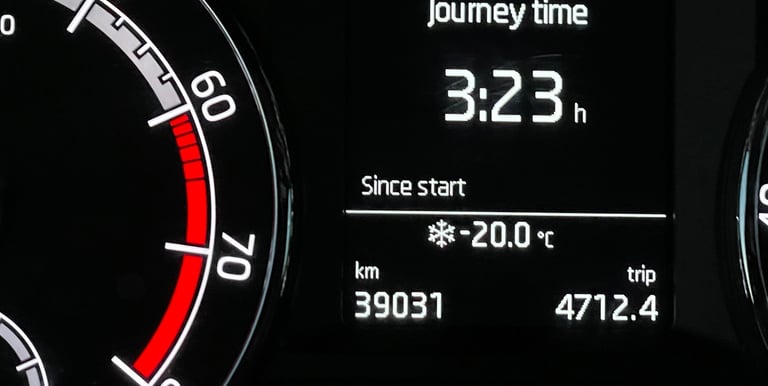

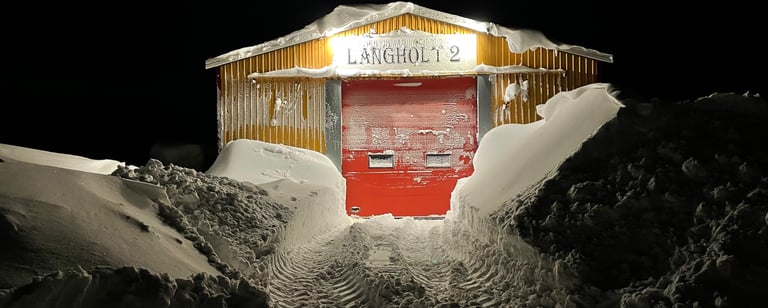

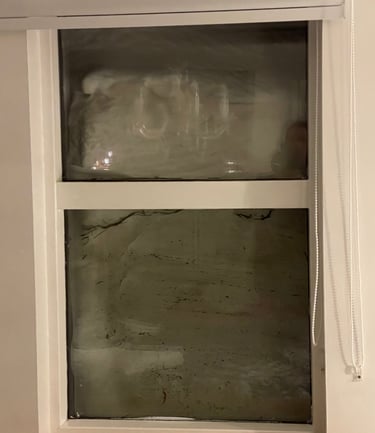

We had previously downloaded an app on my phone which gives you aurora alerts and predictions for the best times and placed to see the lights. Tonights prediction was low but you always live in hope, so we kept popping out into the cold to see if they were active, unfortunately we only had a faint show, nothing to shout about. The following morning we were able to see the full extent of the snow drifts, the snow was up to the roof in places and lots of the windows were obscured. The owners had dug walkways out in the snow so you could get to the doors and road.
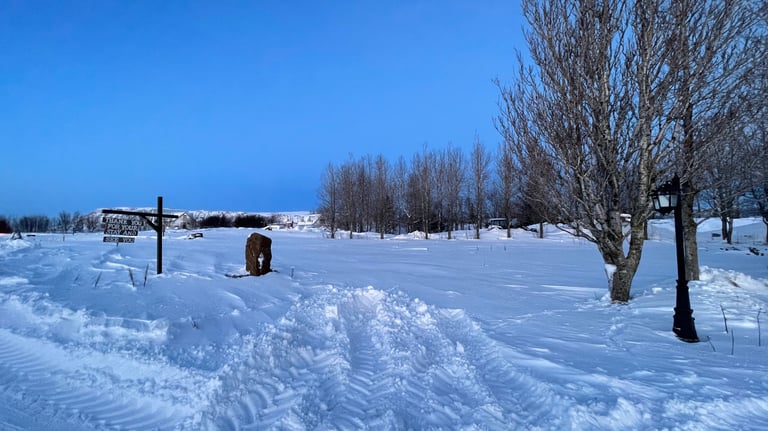

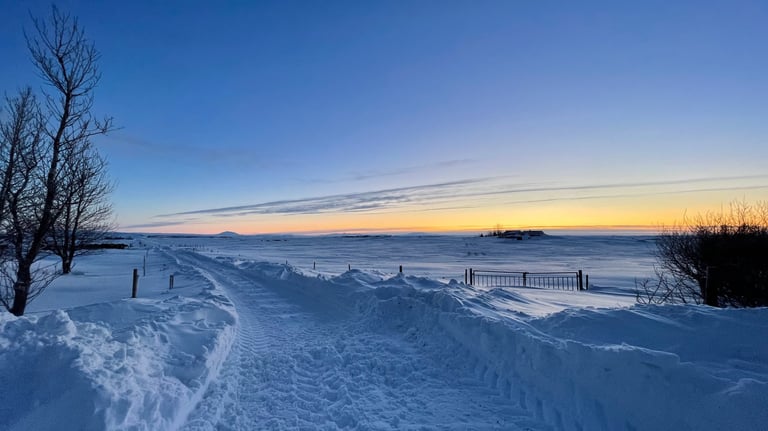

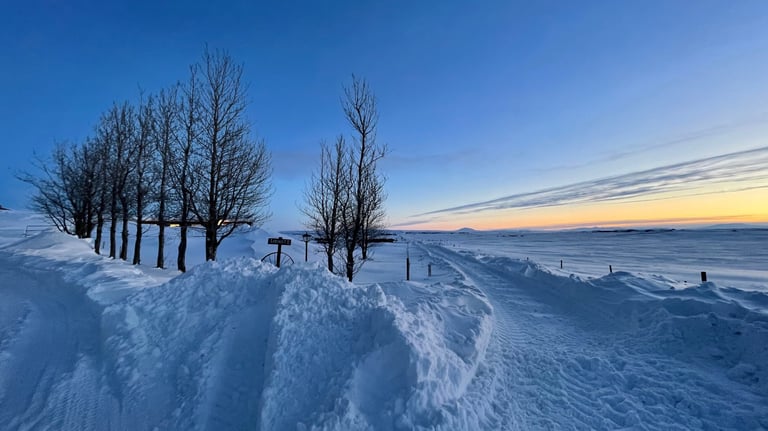

So we tentatively set off to explore the Golden Circle, a circular rout that takes you to see some of the main sights in the south of Iceland. The roads were still thick in snow, but it was quite a dry snow due to the temperature so it was actually quite easy to drive on. Our first stop was at Haukadalur geothermal field, a large area of geothermal activity in the Haukadalur Valley. There was plenty of parking, a cafe, shop and toilets and a very tame walkway that leads you through some of the geothermal activity. A hot water stream runs alongside the walkway and there are small pools of bubbling mud or water. The main attraction at Haukadalur is Strokkur or The Great Geyser, is an impressive fountain type geyser that erupts anywhere between every six to ten minutes and is typically between fifteen and twenty meters high. The walkway takes you on a climb to the top of a small hill that gives you a great view of the area.
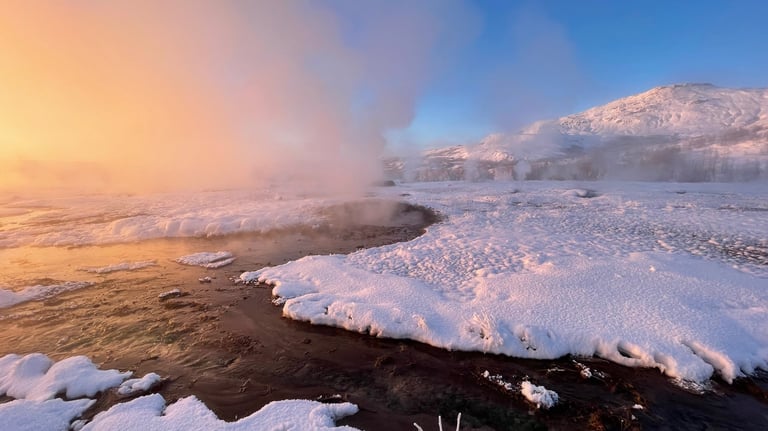

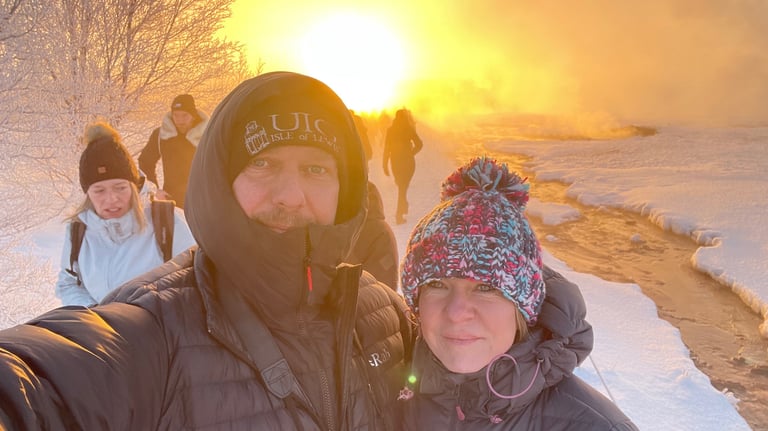

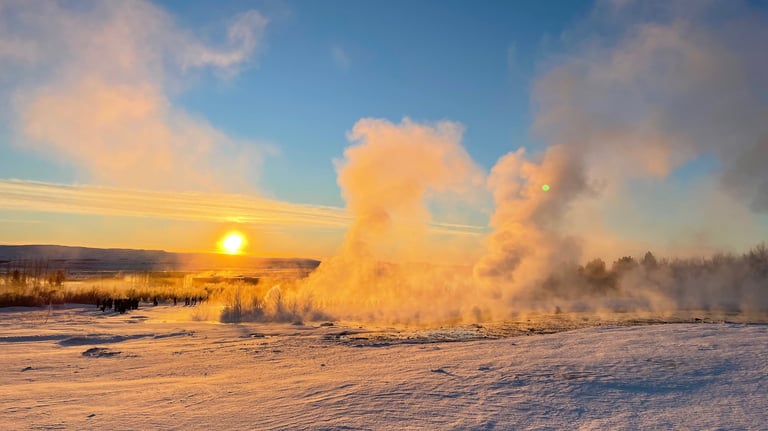

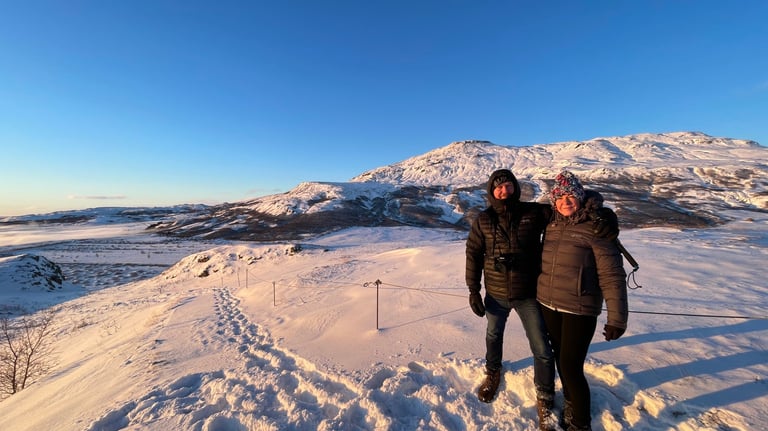

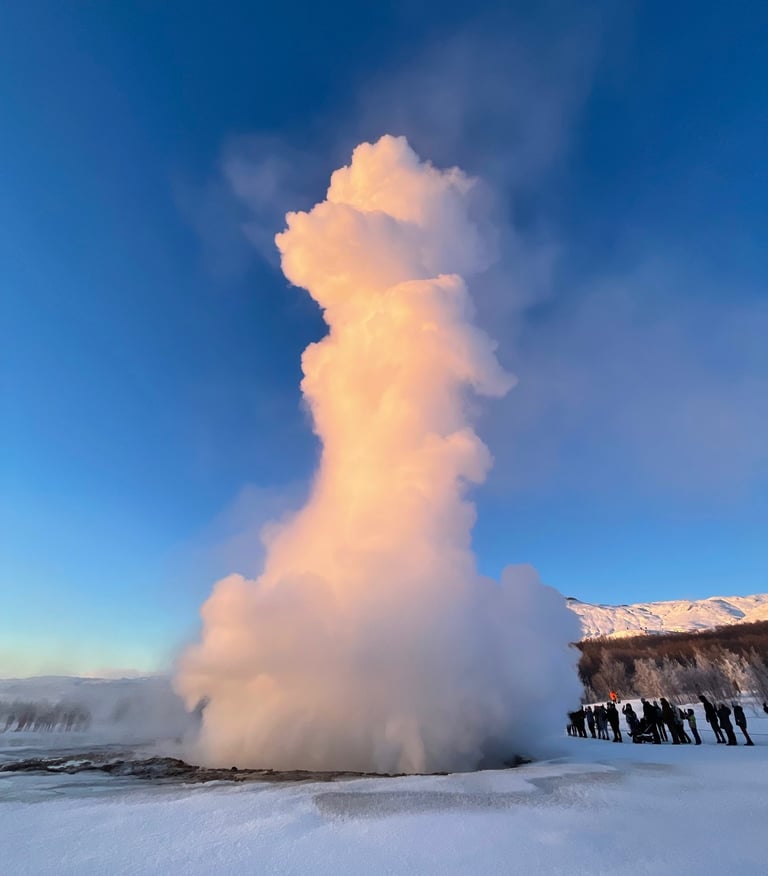

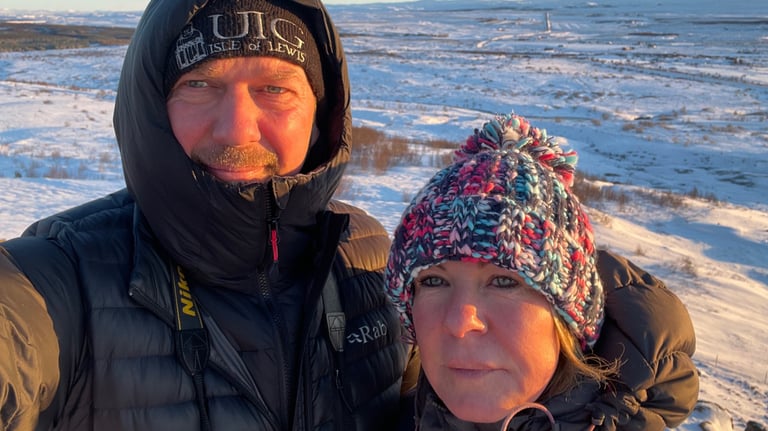

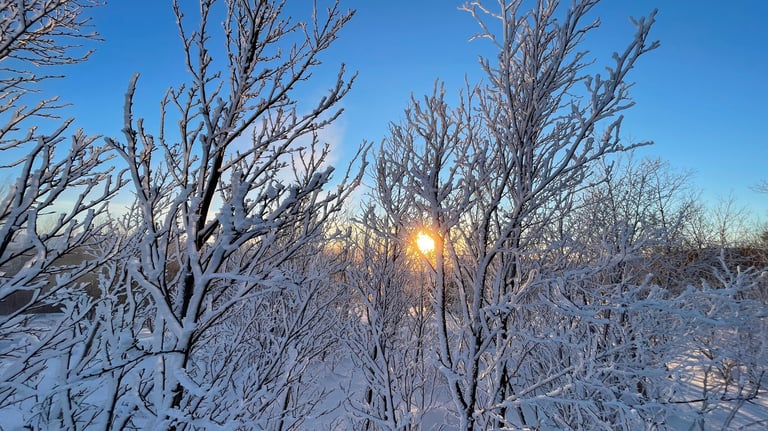

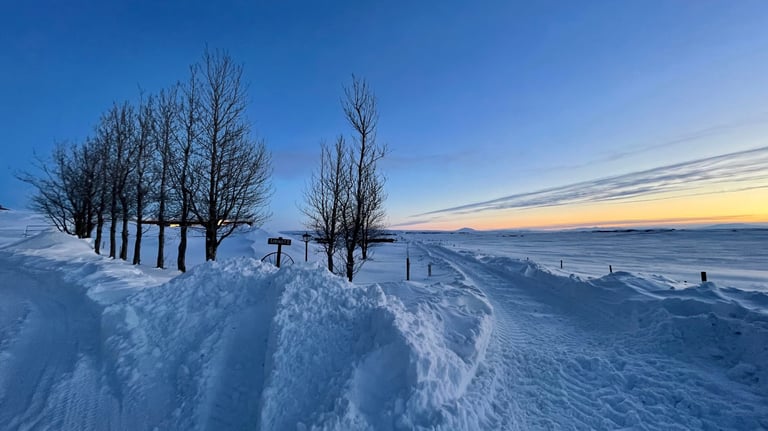

Following Haukadalur we continued on for another 15 minutes or so to Gullfoss waterfall, again this had plenty of parking, a cafe, shop and toilets and a hand railed walkway that takes you to several viewing points above the falls. Gullfoss is created by the Hvita river and is known as a staircase waterfall as it drops in a series of steps, the larges of which is 21m high. The waterfall is really impressive, even in the winter when the flow is at its lowest, only around 80 cubic meters per second as opposed to 140 in the summer. The beauty of the winter however is that the waterfall is thick in ice and snow even though it was extremely cold. It was difficult to take your gloves off to take a photo for more that a few seconds as it was minus 20 degrees centigrade and the wind chill was making it feel much colder. There were also some really impressive 4x4 tour vehicles parked up here that I couldn’t help think would make a great camper.
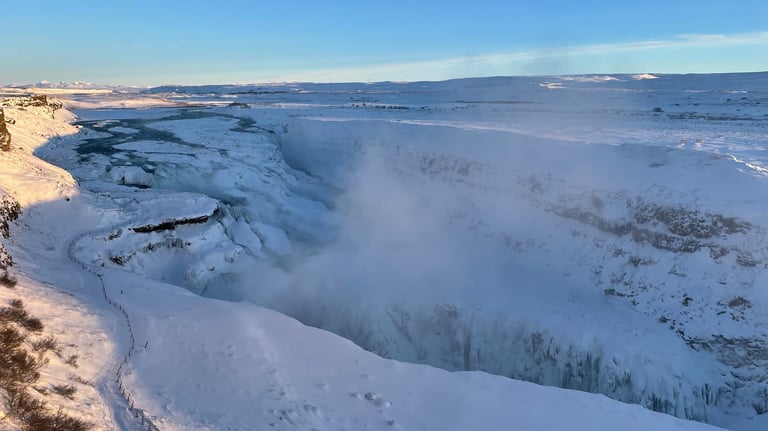

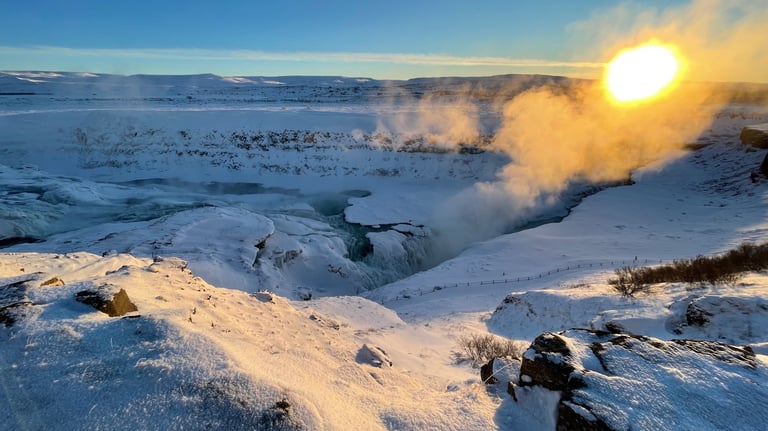

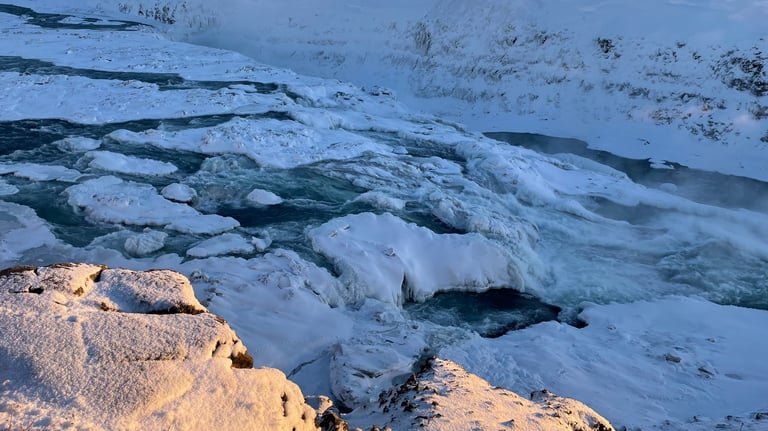

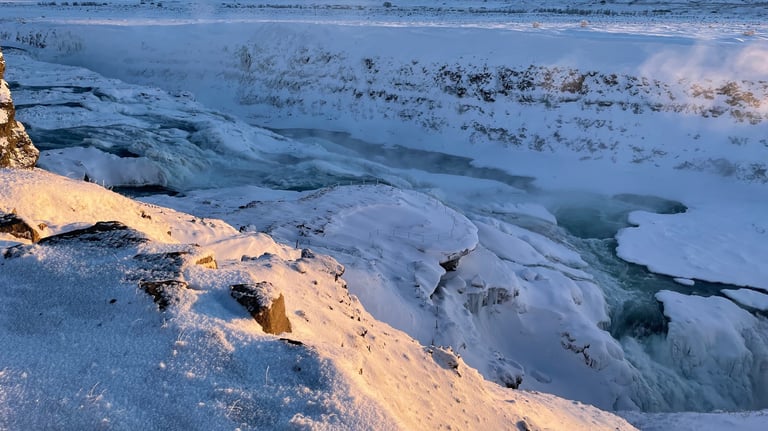

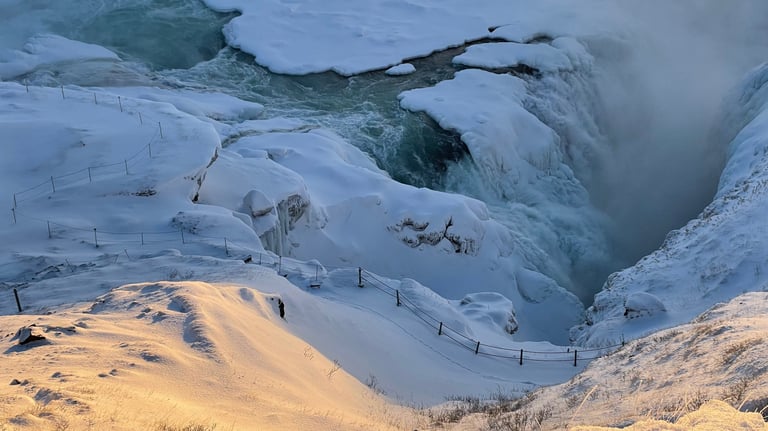

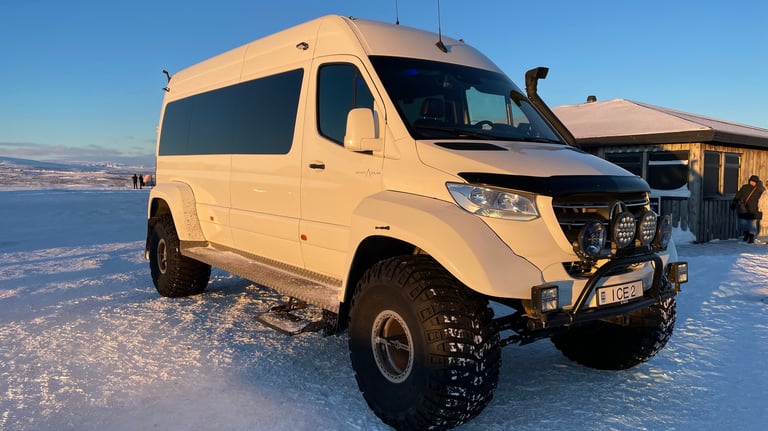

Another main stop on the golden circle is Thingvellir National Park, unfortunately snow drifts had closed several roads so we were unable to get there without a massive detour, and time would not allow us to get there whilst we still had daylight as it goes dark by 4:00pm in December. So on the way back to Selfoss we called into the Kerid Crater, a large intact volcanic crater that was formed by a huge volcanic eruption around 6500 years ago. This is quite an interesting site although it was covered in snow, It is supposed to be quite beautiful in the summer. We then returned to Country Dreams and again waited in anticipation for a show of the Northern Lights, but like the previous night, apart from a few faint whisps there was nothing.
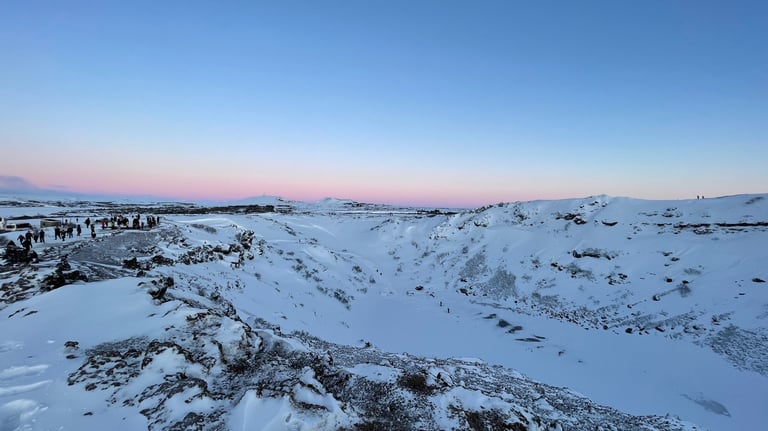

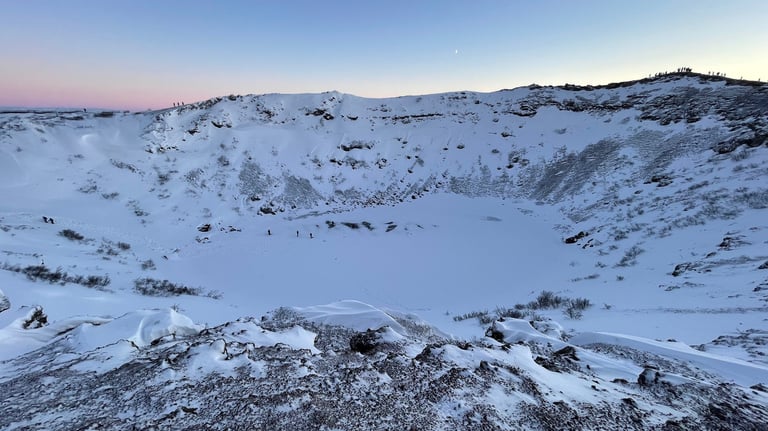

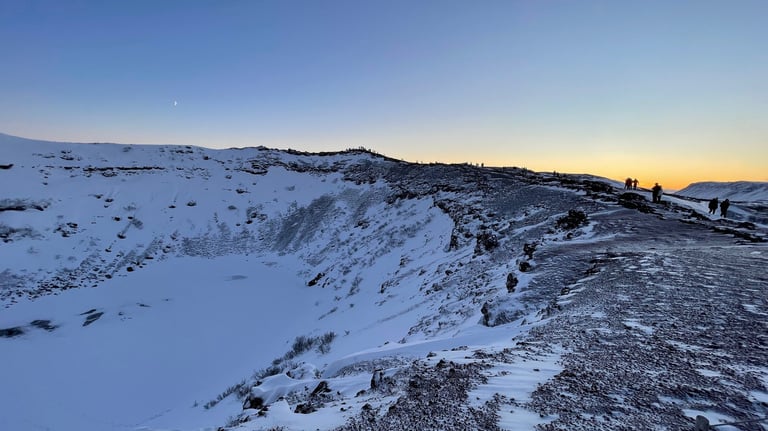

In the morning we ventured south, first popping into Selfoss to take a look at the town, then we went on to Hveragerði. Hveragerði is a small town often nicknamed ‘the Earthquake Town’ or ‘the Hot Spring Town’, due to the active geological and geothermal forces that define it. We went to find the hot spring valley, an area where there is a hot river flowing through the valley. The walk is supposed to take you around an hour up into the hills, but after initially following a good path it seemed to completely disappear under the snow making it impossible to follow so this forced us to turn back and give up on the springs. The valley below is also full of geothermal outlets and the river is also warm.
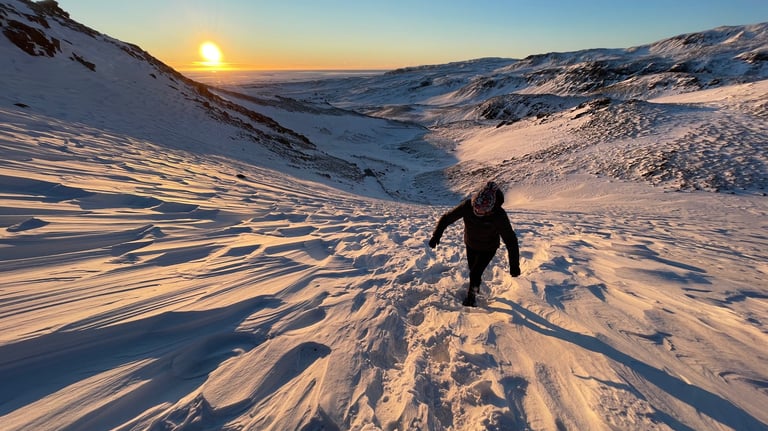

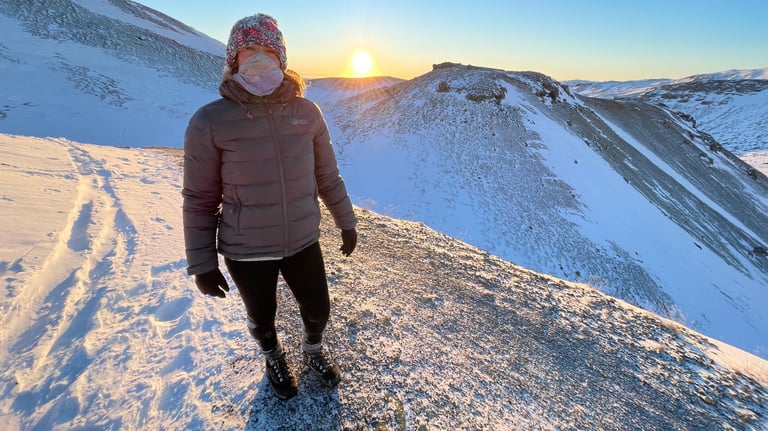

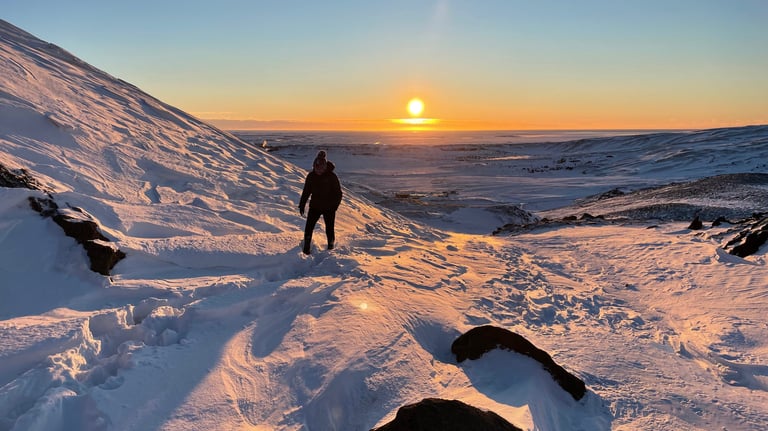

We moved on to Porlakshofn to find the southern black beach, parking up slightly out of the town but still quite close to the sea, it was still quite an effort to get through the drifting snow to actually get onto the beach. It was quite a strange sight once you were on the beach as the blue sea met the black sand that met abruptly with the white snow on the dunes, a thin black strip for miles.
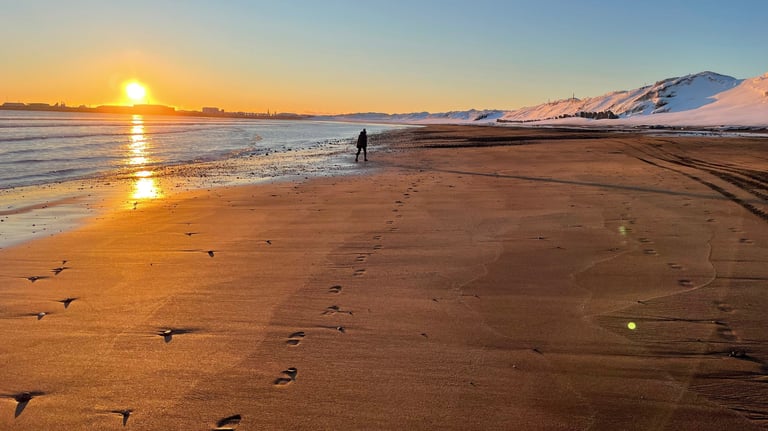

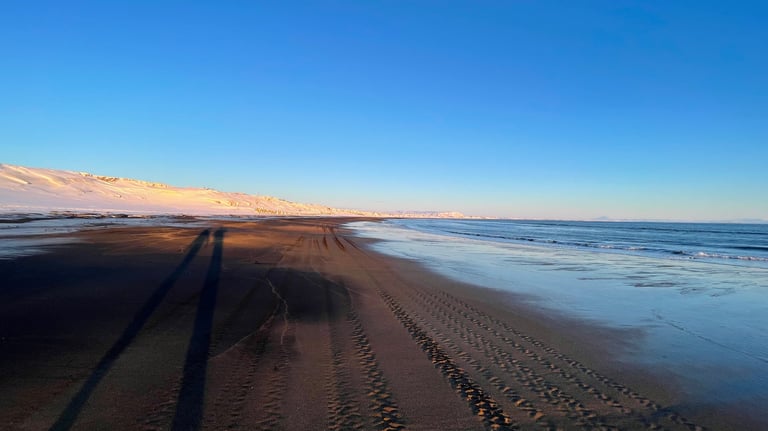

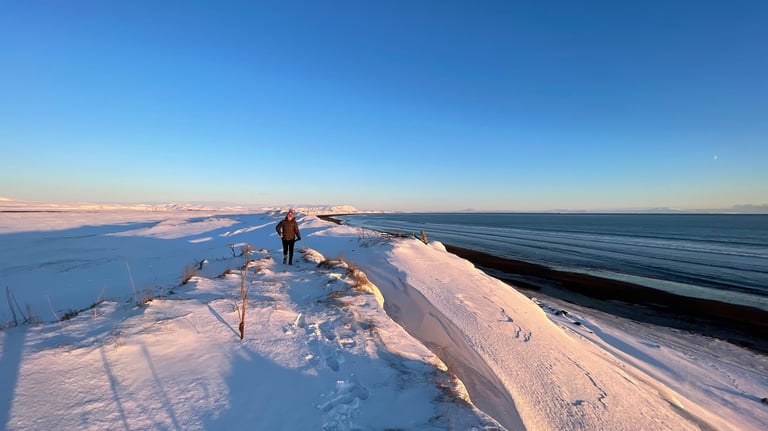

Following on from Porlakshofn we drove down Eyrarbakkavegur and over the bridge which spans the Olfusa river estuary. The road follows the river estuary and gives you a great view of the vast amounts of water and shifting ice that flow through this tidal area.
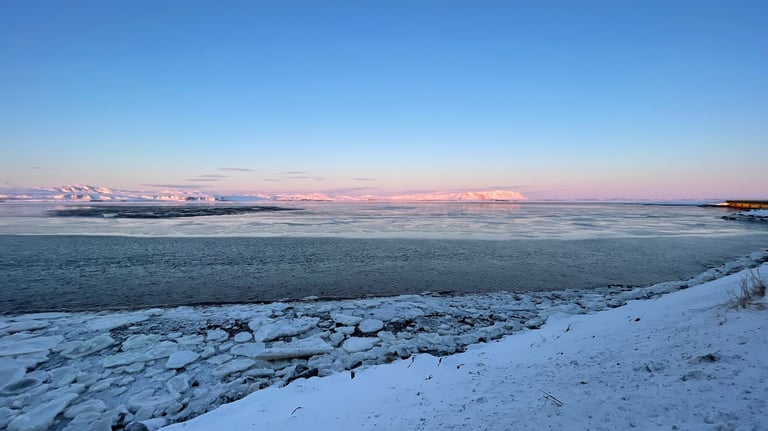

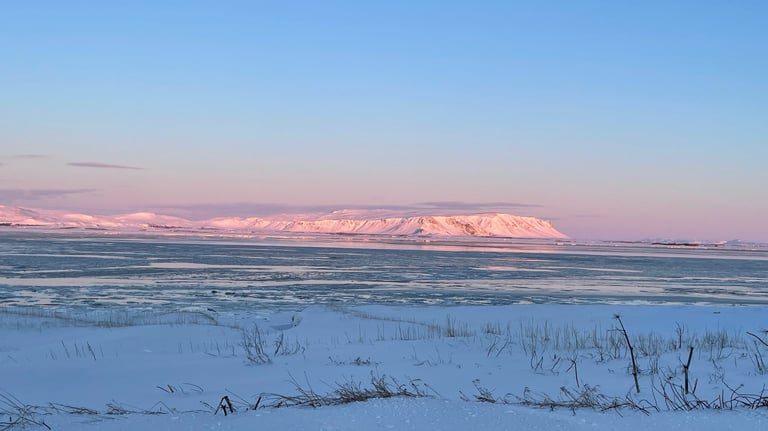

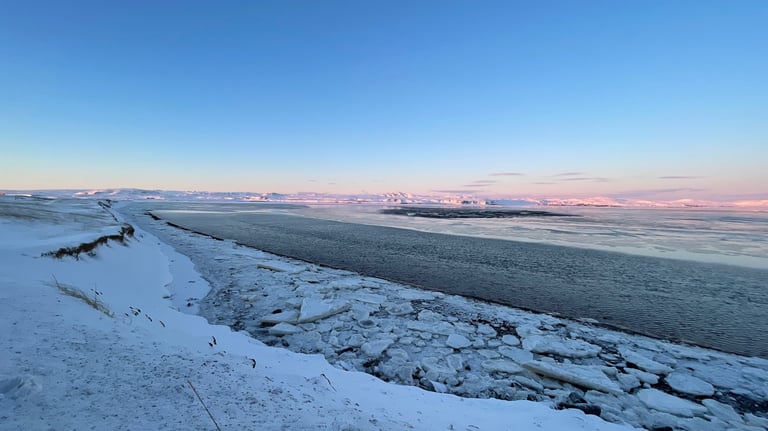

Our final destination of the day was Urridafoss, Icelands most voluminous waterfall. This is where the mighty Þjórsá River flows at around 360 cubic meters per second and drops by the edge of the Þjórsárhraun lava field. Strangely however when we got there, there was no site of the waterfall at all as the snow and ice had built up forming a layer over the top shielding it completely from view
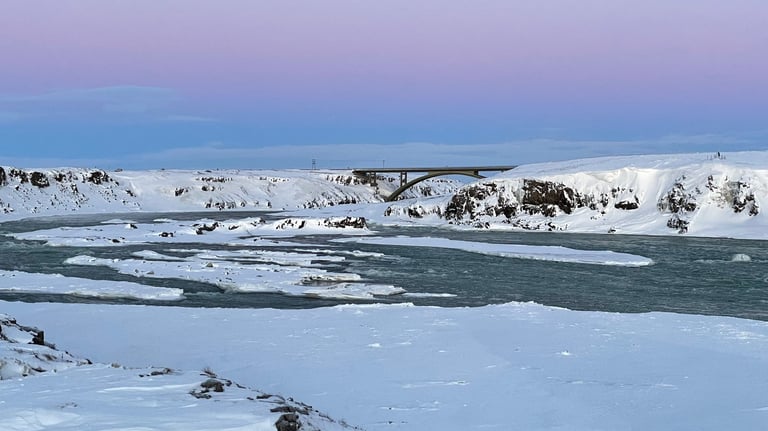

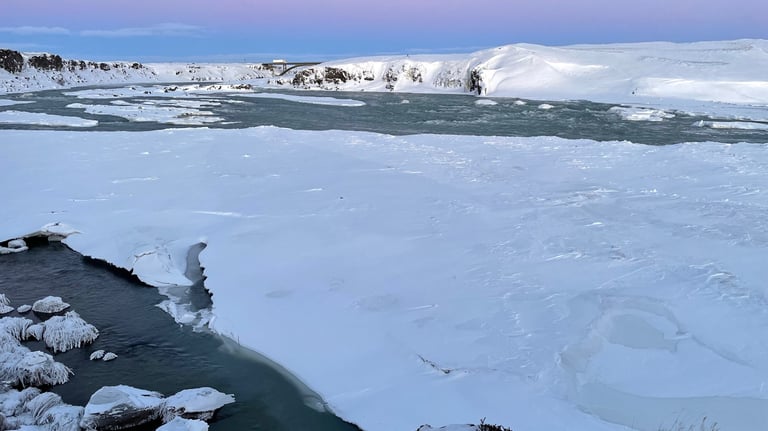

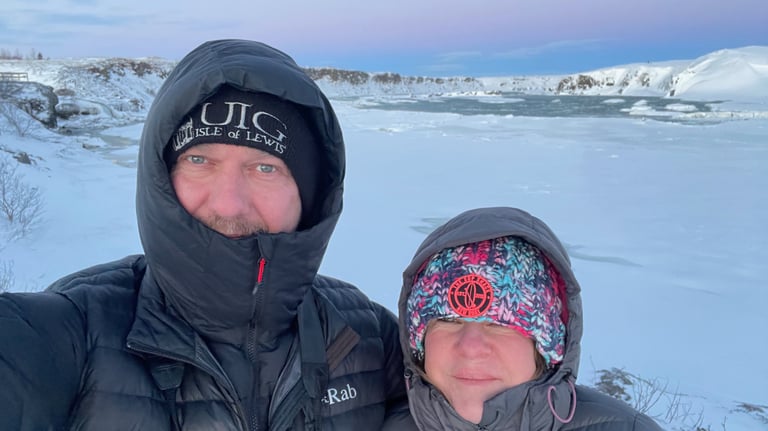

Back at Country Dream we settled for the night and waited in anticipation to see if the northern lights were going to make an appearance again and not to be disappointed our aurora app was looking promising. Finally after waiting most of the night we had a huge ping on the app and scrambled for the door to see an aurora show that will linger in our memories forever. The lights were truly exceptional they developed slowly but all of a sudden brightened into a stunning display and we were treated to a full on magical sky that was made all the more beautiful by the horses silhouetted by the show.
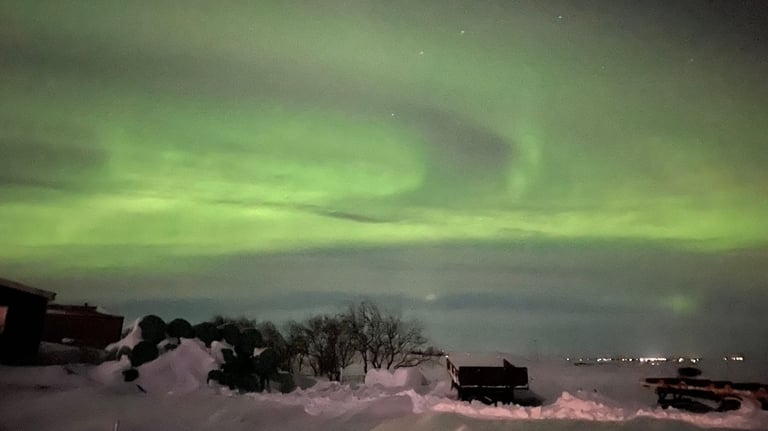

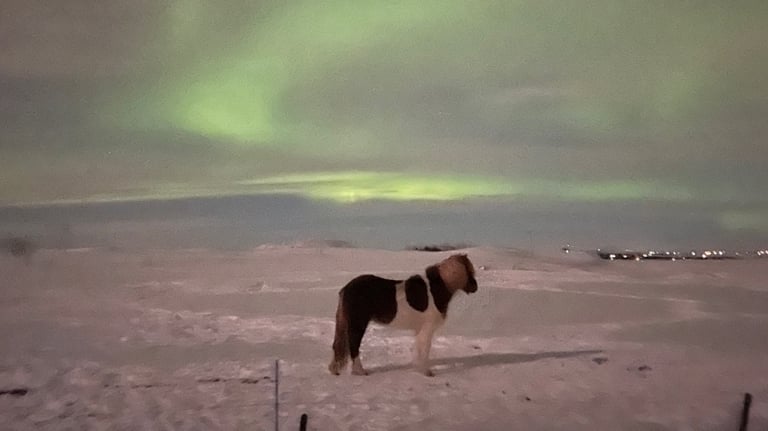

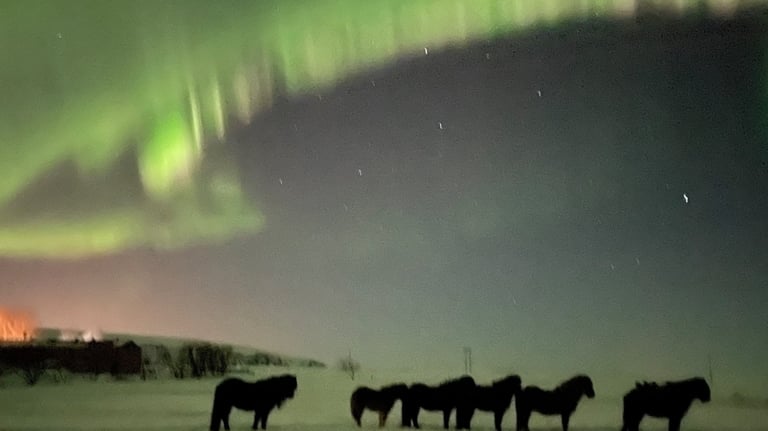

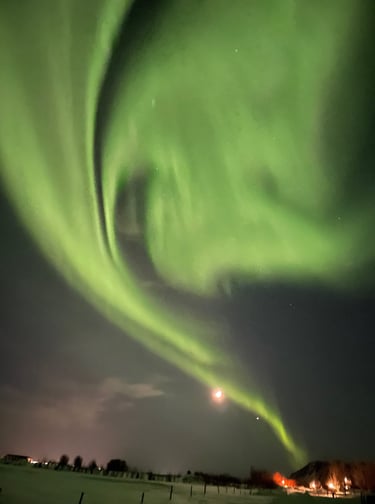

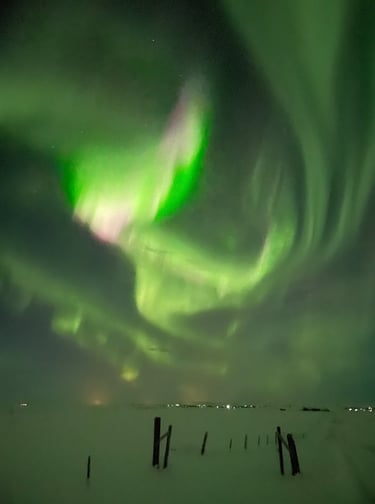

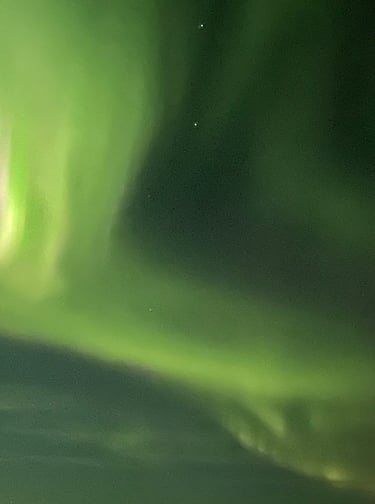

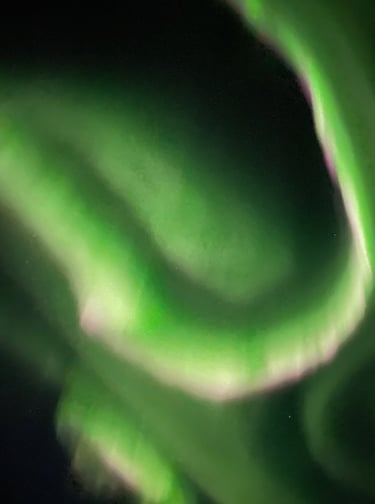

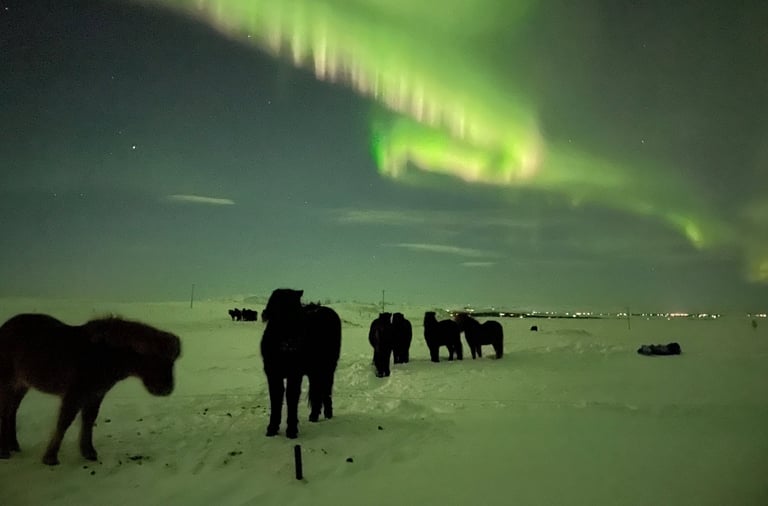



For the following day we had booked a snowmobile experience to ride over the Mýrdalsjökull Glacier so we were up early for the 70 mile drive towards Vik on the south coast. The weather was crisp and clear although there was forecast for more snow. On the way to Vik we stopped at the Skogafoss waterfall, a huge waterfall that really is worth a visit, the waterfall in the summer is 25 meters wide, but considerably reduced due to the ice in winter and 60 meters high. According to legend, the first Viking settler in the area, Þrasi Þórólfsson, buried a treasure in a cave behind the waterfall. The legend continues that locals found the chest years later, but were only able to grasp the ring on the side of the chest before it disappeared again. The ring was allegedly given to the local church. The old church door ring is now in the Skógar museum. You can walk right to the foot of the waterfall as the river below is frozen over in most places and there is also a steep walkway to the right hand side that takes you to the top, this again in winter is more like a toboggan run so care is needed.
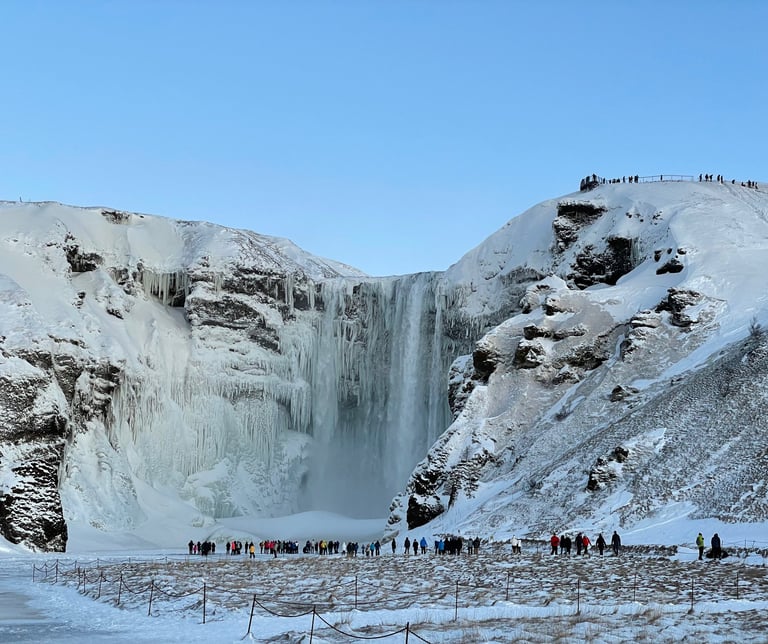

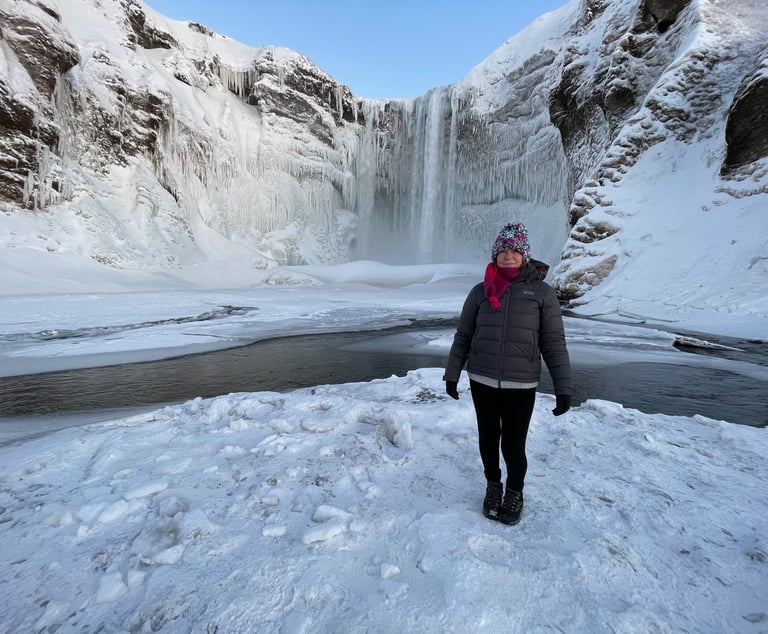

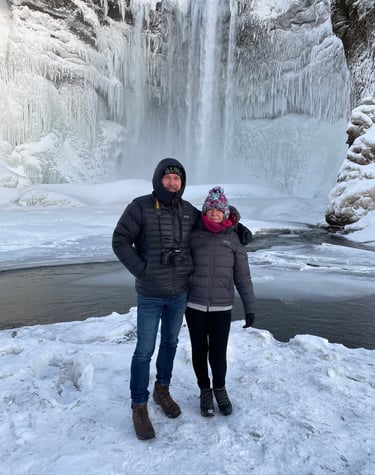

Continuing on from Skogafoss we arrived at the the Icelandic Mountain Guides Snowmobile centre to be informed that the tour had to be cancelled due to extreme weather on the glacier (they sent me an email 15 minutes before we arrived!). Of course we were disappointed but used the opportunity to carry on to Vik I Myrdal, a small fishing village a few miles further on. A lovely little village with a church on a prominent viewpoint, this was the furthest along the coast road you could go due to the weather, snow had blocked the roads further on. We also visited Dyrhólaey, a small peninsular and nature reserve with a lighthouse standing on large cliffs with breathtaking views of the whole area including the Mýrdalsjökull Glacier. The area got its name from the sea arch in the cliffs below as Dyrhólaey literally means "the hill island with the door hole.
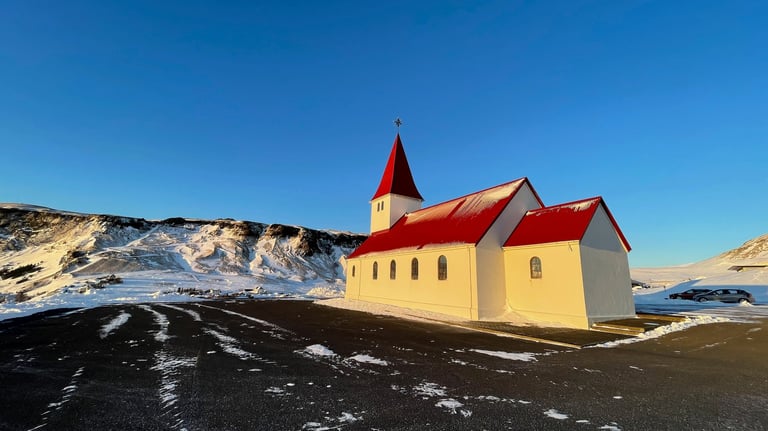

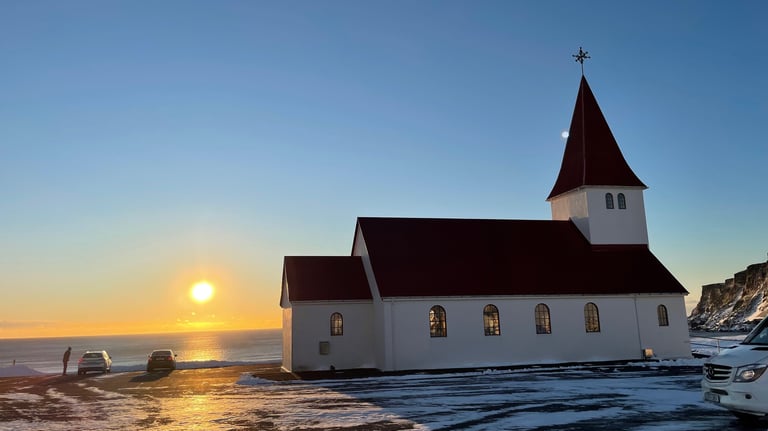

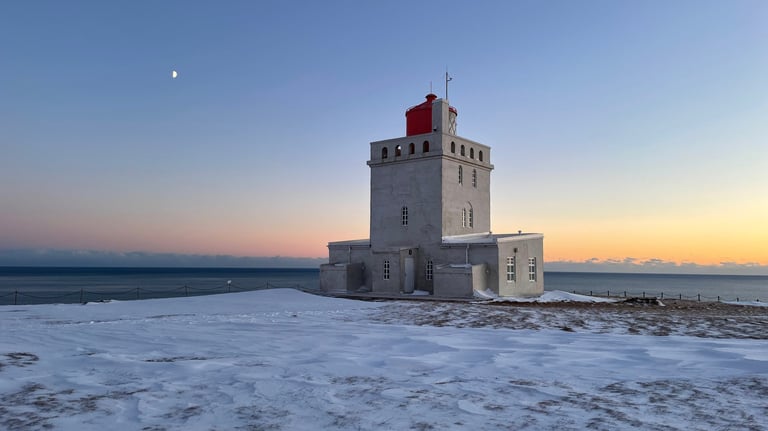

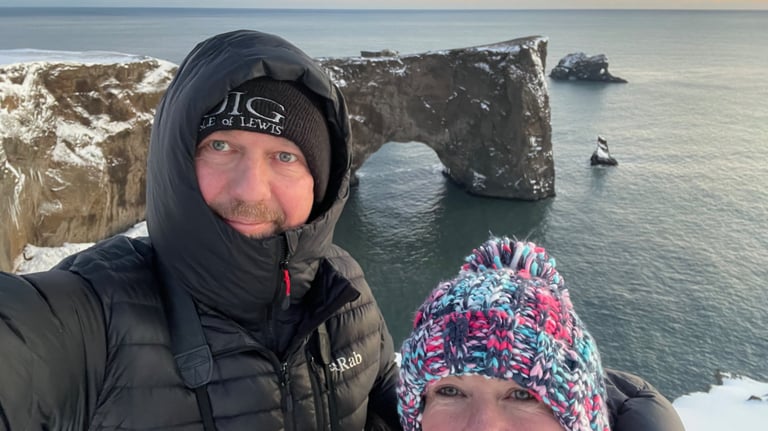

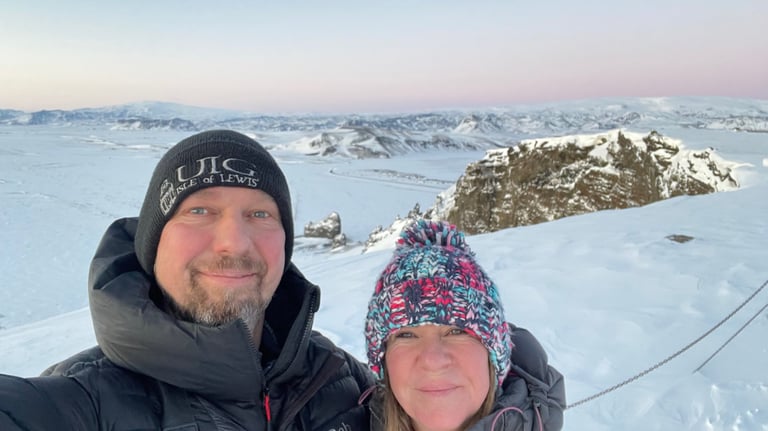

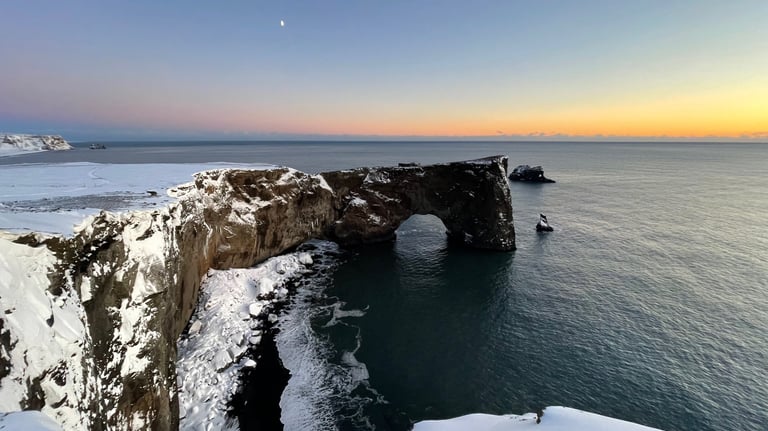

On the way back we also stopped at solheimasandur where there is a plane crash site of a US Navy Douglas C-117D, its quite an attraction to passing tourists and even has its own bus that runs from the car park to the wreck site. The crash site is around two miles from the car park and its actually quite a nice walk. You can of course take the bus and pay an extortionate amount to get there, but walking offers you the chance to be at the site between busses and without the crowds. There is not a great deal left besides the main fuselage and a few bits scattered around, but again worth the effort as the area it sits in is stunning. Finally we returned to Country Dream in the hope of seeing the Aurora again, but sadly our last night was a complete no show.
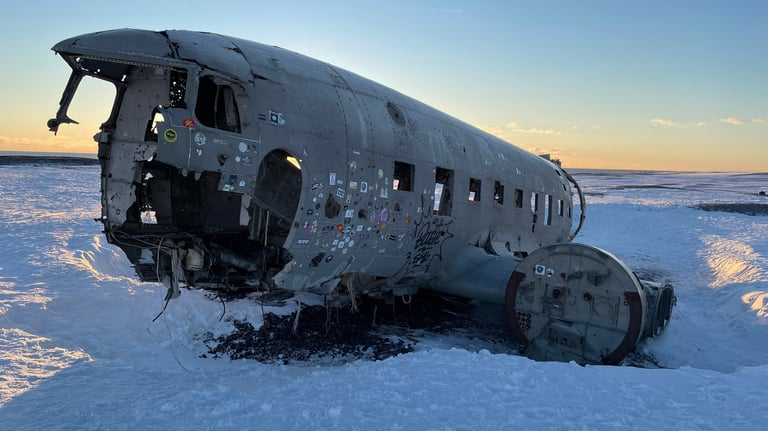

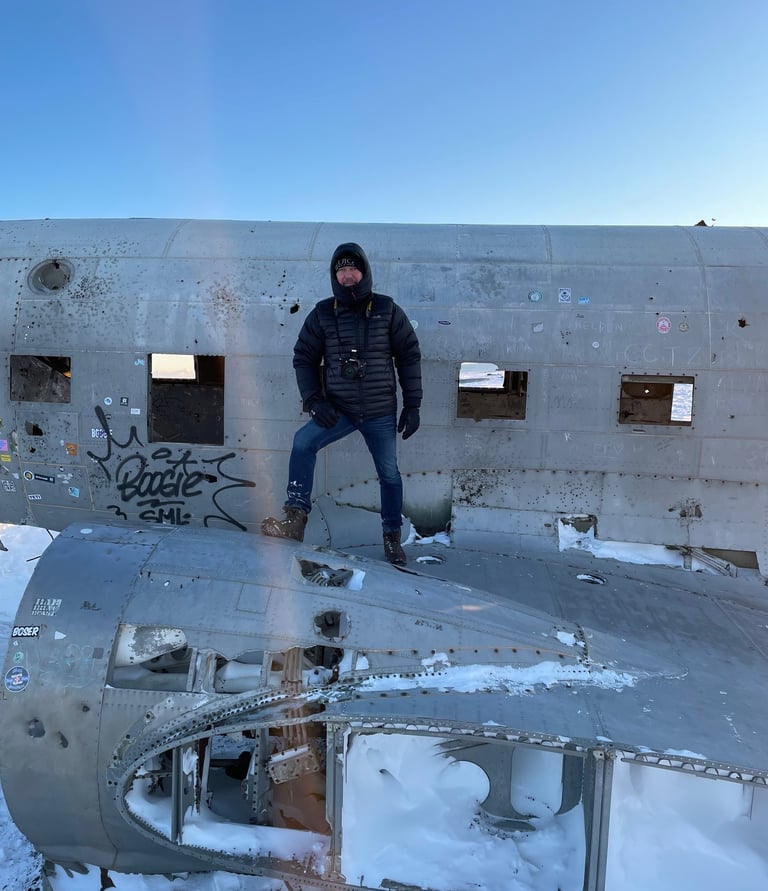

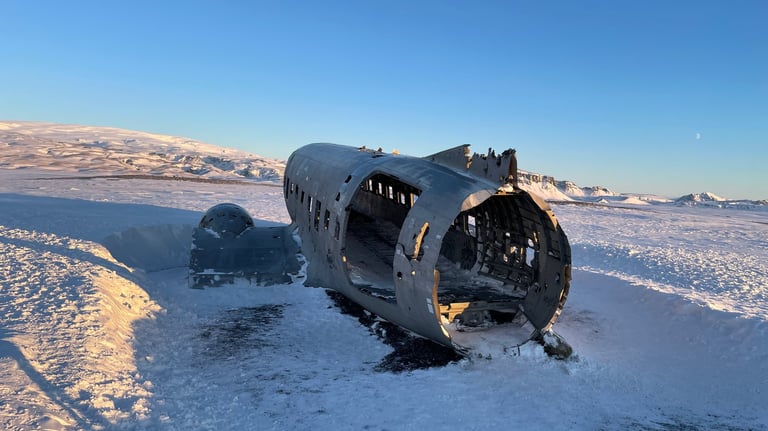

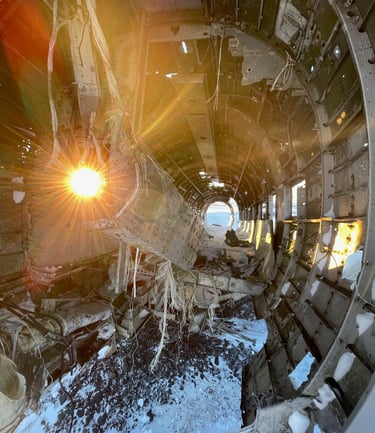

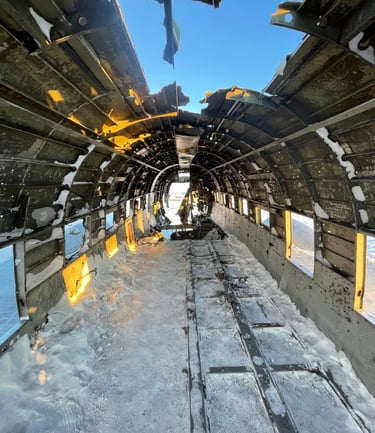

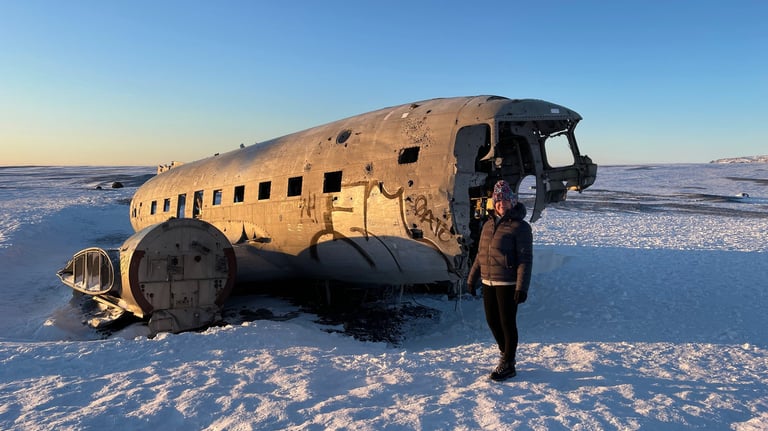

Our last morning the weather had forecast to be bad, heavy snow in the south of the island so we left early for Reykjavik and had the morning in the capital city. The most prominent feature in Reykjavik is Hallgrímskirkja (Church of Hallgrímur) Reykjavik’s cathedral,. State Architect Guðjón Samúelsson's design of the church was commissioned in 1937. He is said to have designed it to resemble the trap rocks, mountains and glaciers of Iceland's landscape, in particular its columnar basalt or "organ pipe" formations. It is a stunning building both inside out out and not to be missed if you are in the capital. Reykjavik is a lovely but expensive town full of colourful souvenir shops, pubs and cafes. we walked around the port area and on to the Harpa, Icelands impressive modern looking opera house, before meandering for a while through the rainbow streets, all the time thinking of the weather forecast.
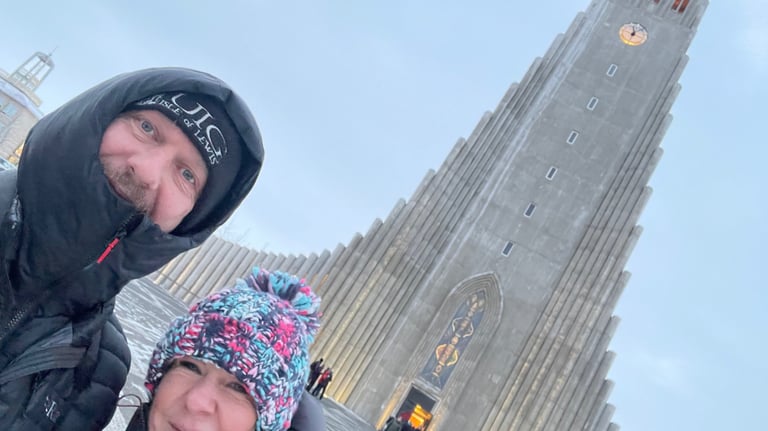

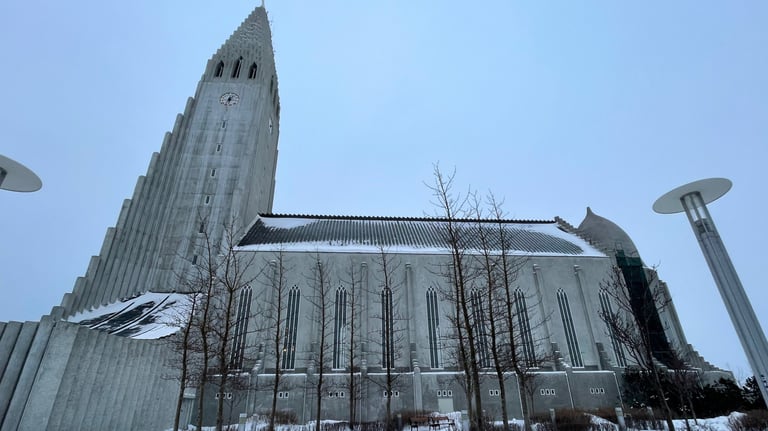

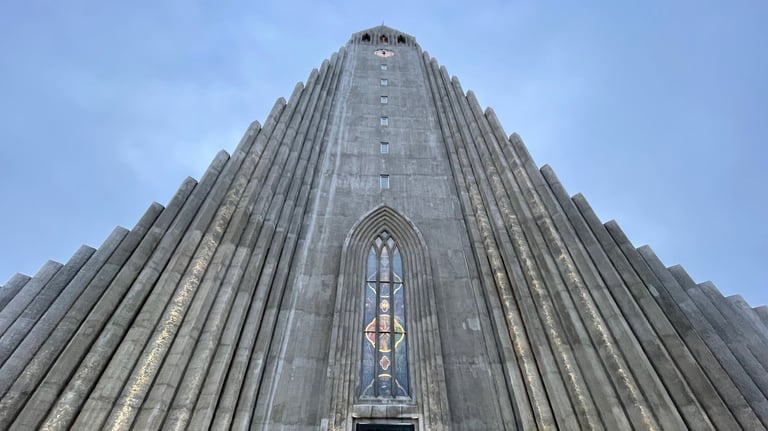

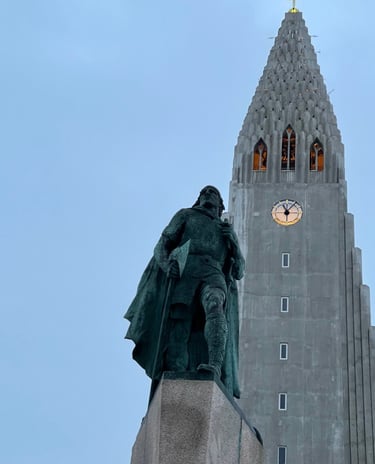

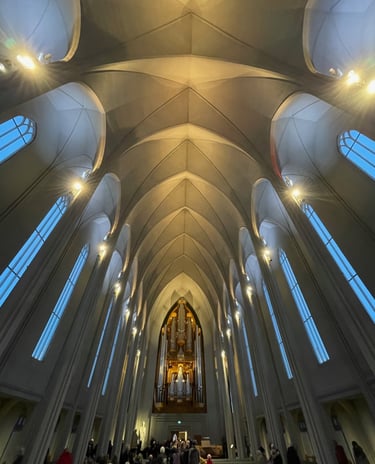

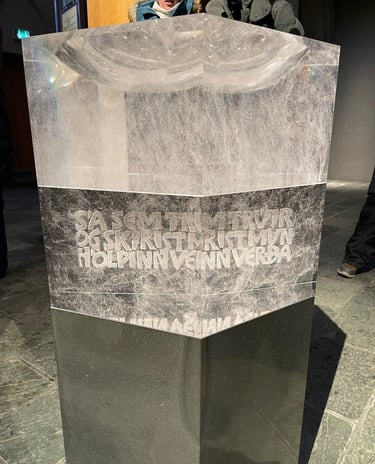

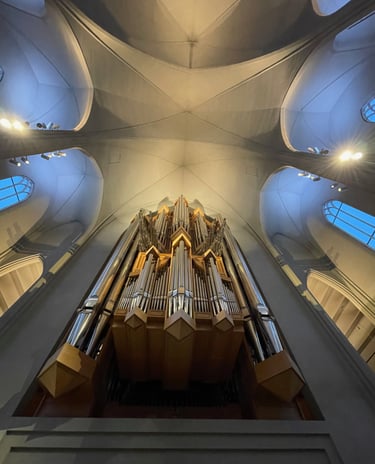

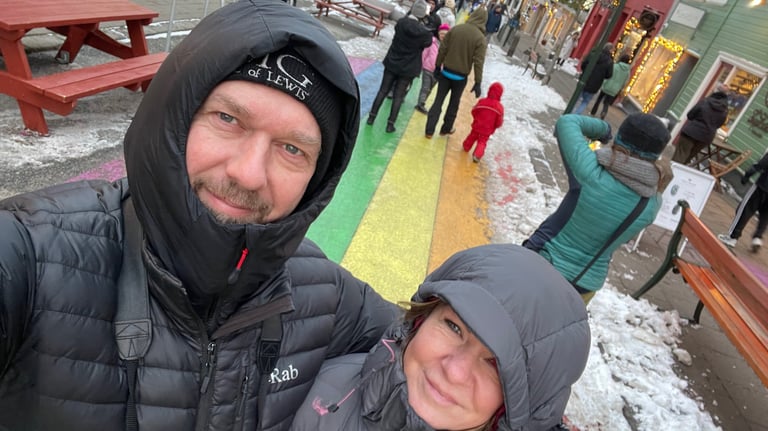

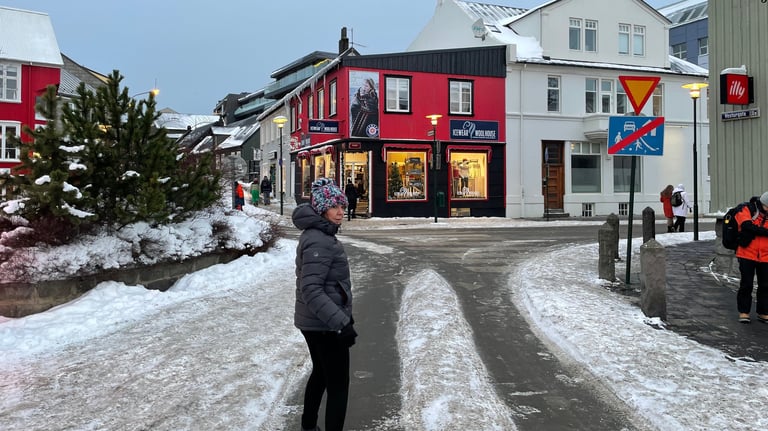

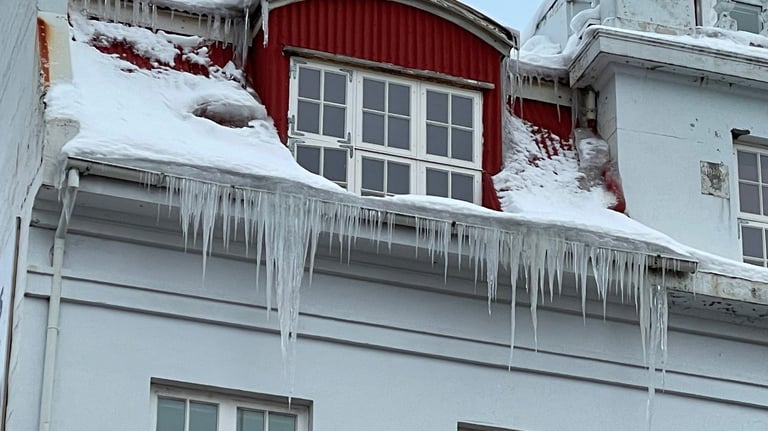

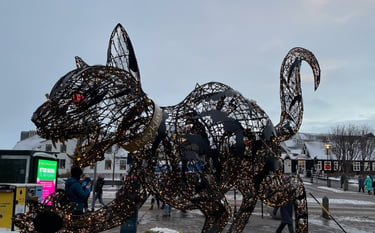

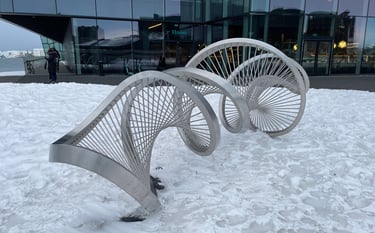

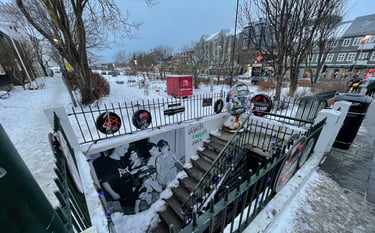

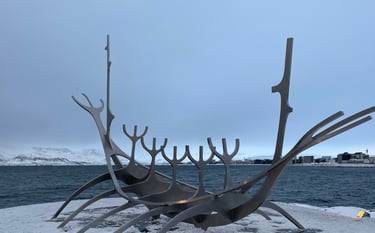

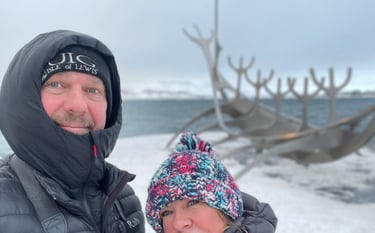

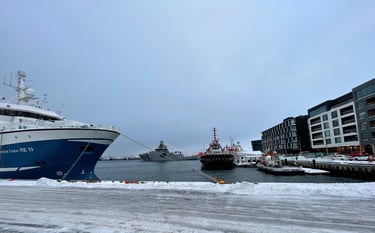

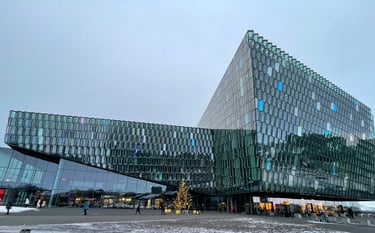

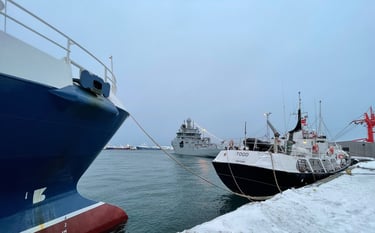

We finally gave in and made the 60 or so minute drive back to the airport where we could return the hire car. We were glad we did as the snow started to fall with some urgency. The drive to the airport was tricky as at some points even the motorway tarmac started to disappear under the snow which had turned quite heavy, it even left us wondering if our flight was going to be able take off at all. We made it to the airport with a couple of hours to kill and the snow had decided to calm down. Our plane left on time and with it we took memories of a brief but wonderful trip, all be it a bit cold at times!
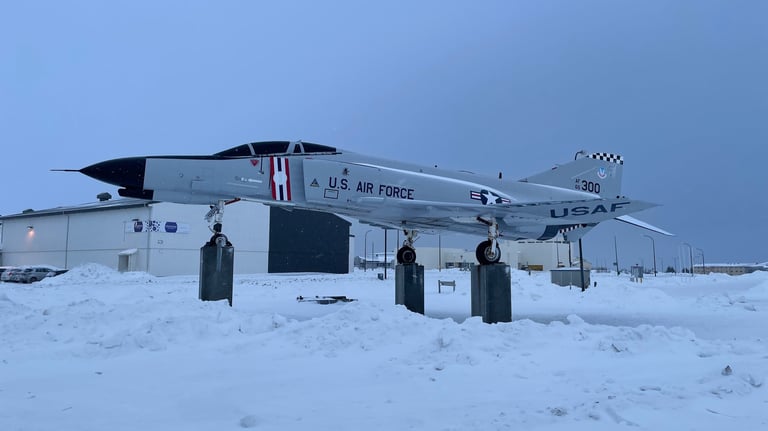

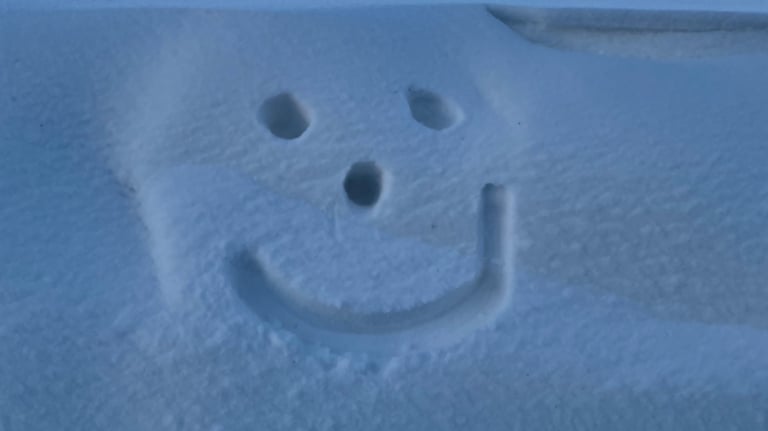

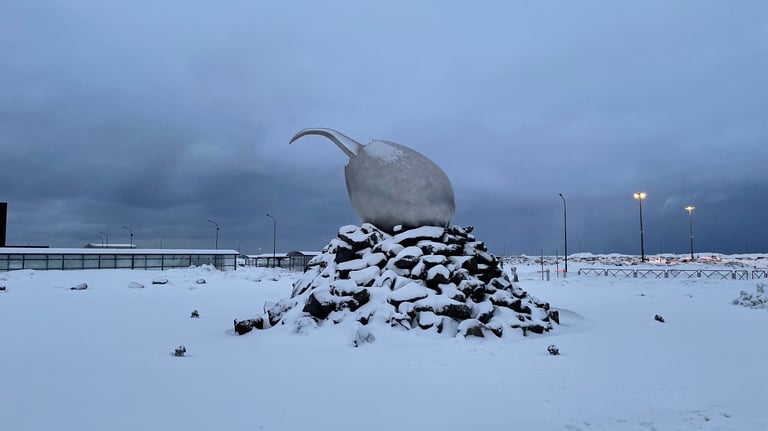

Just a note to finish on, our accommodation at Country Dream was a self catering option, it had a shared kitchen that saved us an absolute fortune as Iceland is a really expensive place to eat out. We shopped in the supermarkets which are expensive, but not extraordinarily so, and cooked for ourselves, making sandwiches to take out in the day. If you do go and stay at a hotel make sure you budget a considerable amount for food. Also the Country Dream was a cheaper option as it was a little way out of town, but it was a fantastic place with really nice owners and had the benefit of being far enough out of town to allow for darker skies, just in case the Northern Lights do make a show.
